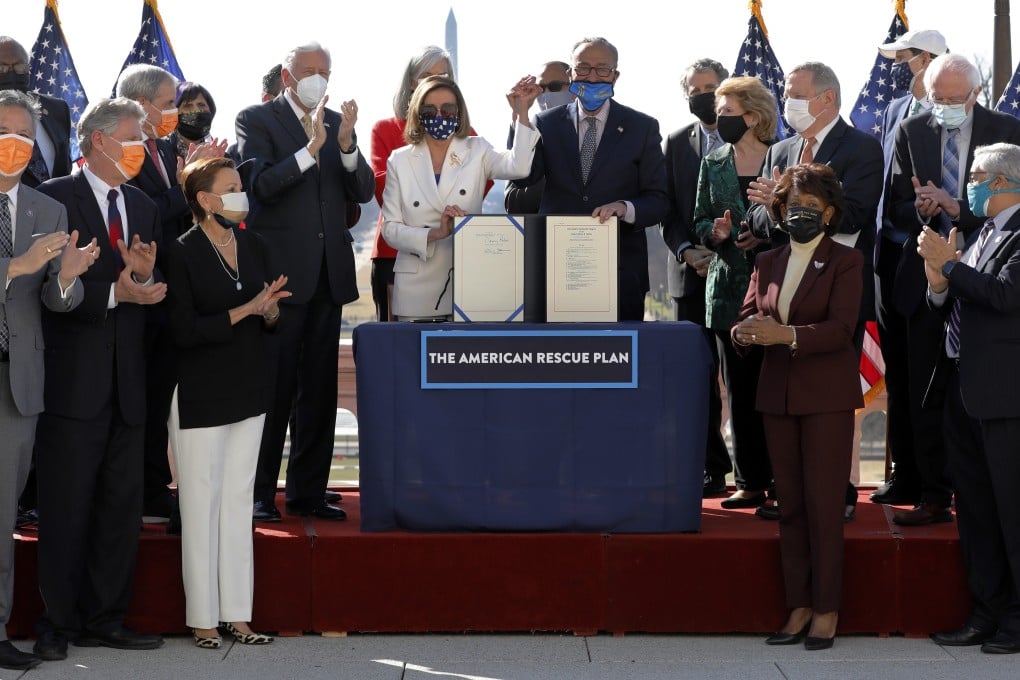American Rescue Plan: China worried about economic impact of Joe Biden’s US$1.9 trillion coronavirus bailout
- US President Joe Biden’s US$1.9 trillion American Rescue Plan received final approval from the US Congress on Wednesday
- It was signed into legislation on Thursday, but concerns have been raised about its potential to cause further financial market turmoil

US President Joe Biden’s US$1.9 trillion coronavirus rescue plan has raised the alert level in China, with government officials and advisers openly expressing fear that the massive injection of money into the global market could inflate asset bubbles, cause further financial market turmoil and lead to higher inflation.
And Biden signed it into legislation on Thursday, giving a strong boost to the US economy but also raising concerns that growth could overheat and force the US Federal Reserve to raise interest rates sooner than previously expected.
Huang Qifan, former Chongqing mayor and an outspoken government adviser, described the plan as a “fierce flood and savage beast”, warning it posed a huge challenge to the rest of the world, especially China.
The newly launched US$1.9 trillion rescue plan will largely be funded with a new round of money printing. It will inevitably result in massive liquidity and inflation
“The United States has released an cumulative US$7 trillion of liquidity through [the issuance of] Treasury securities and unlimited quantitative easing [by the Federal Reserve] to save its economy.